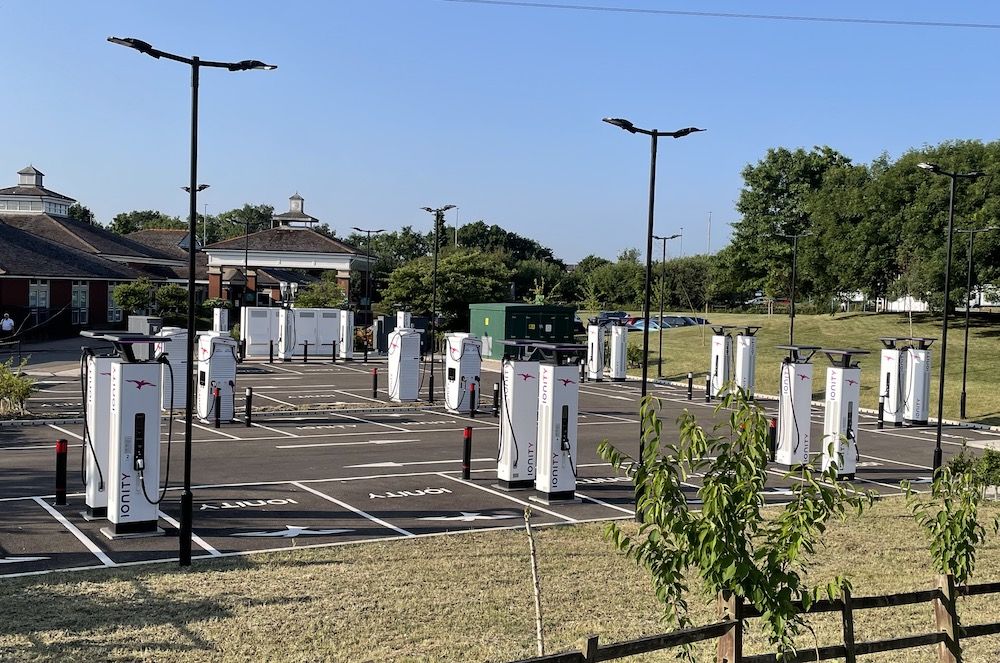Motoring broadcaster and transport campaigner Quentin Willson highlights the challenges faced by councils when it comes to delivering electric vehicle (EV) charging infrastructure and calls for more government support to help them. Read his latest exclusive column for Transport + Energy below.
You may have already read in Transport + Energy how my campaign group, FairCharge, revealed the results of an FOI enquiry asking over 300 councils if they’d published EV transition strategies as required by the government and Local Government Associations. The results make gloomy reading. Only 28% of local authorities have published an EV strategy with a further 23% in the process of devising one. That’s less than three in 10 councils across the country with a fully formed plan of how they are going to find the sites, cable in the power, build the infrastructure and chose the chargers. Three in 10. I can hear the EV community’s collective gasp.
This is incredibly serious. By devolving the task of building a world-class EV infrastructure to local councils the government could have inadvertently self-sabotaged the future of the UK’s electric charging infrastructure. And I absolutely don’t have anything against councils but, if we’re honest, building a proper charging infrastructure really is a very specialised job. The bloke from Parks & Recreation won’t be writing the strategy. You need deep knowledge of procurement, power delivery, charging speeds, battery sizes, kilowatt hours, connectivity, local circuits, the local grid, District Network Operators and – this is an absolute red line – to have owned, driven and repeatedly charged an electric car for at least a couple of years. If you’re not passionate about EVs with thousands of battery-only miles under your wheels, you won’t understand the enormity of the task or what’s needed. For me these are obvious truths.
It’s neither fair nor realistic to expect councils to be able to deliver that level of expertise and experience without significant government support. The UK’s charging infrastructure must be consistent, easy to use, convenient, cost-effective, strategically located, and future proofed. I’m no expert, but surely, we can create a blueprint with a set of minimum standards, lists of approved operators, suppliers, 24-hour maintenance contractors and future EV growth projections that councils can work to? If councils create their own systems without expert industry oversight, we could get a patchwork of the wrong chargers in the wrong places with the wrong power outputs that often won’t work. And that way disaster lies.
Last week I was on Iain Dale’s radio show on LBC reacting to a blog he’d written about a nightmare drive in his Audi E-tron GT that took 11 hours instead of four because there weren’t enough chargers on his trip to the east of England and the ones that he could find weren’t working. When high profile influential EV adopters like Iain throw their hands up in angry frustration we’ve got a problem. Iain said he didn’t know if he’d ever buy an EV again. Despite the climbing sales figures we’re still at a very sensitive stage where mainstream consumers don’t think electric cars are the future and doubt that we will ever have the infrastructure to drive EVs with confidence. We don’t need horror stories like Iain’s. We must send out clear and unambiguous signals that we are going to build a world-class charging infrastructure and, more importantly, that we know how to do it.
And yes, the government has lined up a small mountain of money to make all this happen, but delivery of a reliable charging infrastructure is going to depend entirely on the experience, industry knowledge and passion of those involved. This isn’t a game for amateurs. So, Westminster needs to support and advise those councils that haven’t crafted their EV transition strategies. We simply can’t afford to get this wrong. Because stories about disaster drives like Iain’s will set the UK’s electrification strategy back years. It’s absolutely essential we have people involved in this who know about EVs.
Quentin Willson joined the Transport + Energy editorial board last year and writes an exclusive column for the publication.
In his first column which was published in September he outlined his concerns about the amount of information doing the rounds designed to discredit the electric vehicle (EV) in all its forms and what can be done to combat this.
In his second column, he discussed the energy crisis and examined how electrification provides the answer to get out of it.
And in November last year, Quentin spoke about the need for more robust Government policy when it comes to cleaning up our air.














